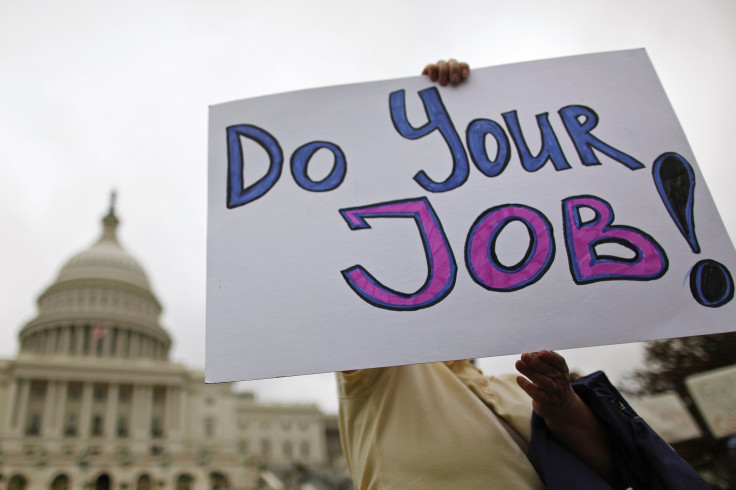US Default 2013: China Calls For De-Americanized World, Worried For Its Treasury Bonds

China is done appealing to the U.S. to end its shutdown and is calling for a de-Americanized world. Leaders of the world’s second-largest economy are expressing displeasure at a time when the U.S. can't seem to get past the shutdown, and China’s considerable dollar assets seem in jeopardy.
The official state news agency Xinhua said on Sunday that since American politicians have yet to strike “a viable deal to bring normality … it is perhaps a good time for the befuddled world to start considering building a de-Americanized world.”
Chinese media last week have already implored the U.S. to be responsible by ending the shutdown and not defaulting on its debts on the Oct. 17 deadline.
China has plenty of reasons to be concerned -- the most urgent being the $1.28 trillion U.S. Treasury bonds it is holding, which effectively bind the Chinese economy, already stagnating, to the U.S.
“The cyclical stagnation in Washington for a viable bipartisan solution over a federal budget and an approval for raising debt ceiling has again left many nations’ tremendous dollar assets in jeopardy and the international community highly agonized,” Xinhua said in a commentary.
The U.S. hasn't acted responsibly in its leading position in the world, the commentary said, and has “abused its superpower status and introduced even more chaos into the world by shifting financial risks overseas, instigating regional tensions amid territorial disputes, and fighting unwarranted wars under the cover of outright lies.”
Since the U.S. hasn't brought about “real, lasting peace,” China believes that several steps should be taken to get the world ready for de-Americanization. First, nations should respect sovereignty, and keep out of other nations’ domestic affairs, and only the United Nations should be handling global hotspot issues. In other words, individual nations shouldn't wage military action against others without a U.N. mandate.
Aside from politics, the world’s financial system also has to be reformed, the commentary continued. Developing economies need more say in major international financial institutions, including the World Bank and the International Monetary Fund, and a new international reserve currency should be introduced to replace the U.S. dollar.
The commentary closed by saying that it isn't possible to “completely toss the United States aside,” and suggest that “politicians first begin with ending the pernicious impasse.”
© Copyright IBTimes 2024. All rights reserved.











